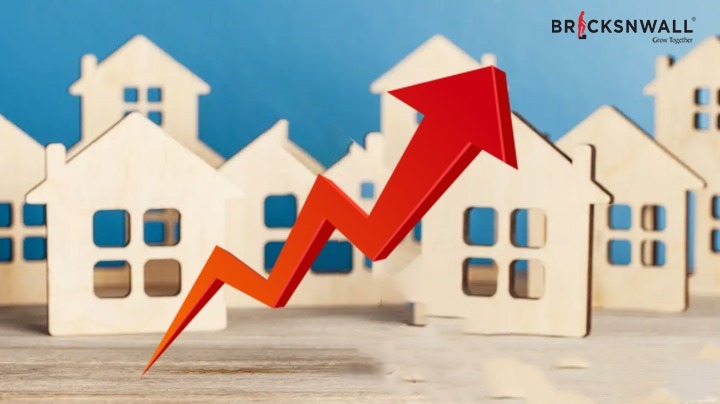Are increasing housing prices good for the economy?
Koheli

You're
probably familiar with the saying, "A home is a man's castle." But
have you ever stopped to think about what that means? Home is more than just a
place to sleep at night for most of us. It's where we raise our families,
build our lives and plant our roots. It's a symbol of stability and security
in an ever-changing world. And as the cost of housing continues to rise, more
and more people are finding it harder and harder to achieve that sense of stability.
In this article, we'll take a closer look at the impact of increasing housing
prices on the economy.
What
Are the Current Housing Prices and Trends?
You've no
doubt been following the news lately and seen that home prices are rising once
again. Prices have been increasing steadily for years and show no signs of
slowing down. So what's causing this trend? Several factors at work include
population growth, low-interest rates and limited supply. But one of the most
significant drivers is the improving economy. Consumers who feel more confident
about their finances are more willing to invest in a home.
And this
isn't just a problem in major metropolitan areas. Prices are increasing in
smaller towns and suburbs as well. So whether you're a first-time homebuyer or
looking to upgrade, you must budget accordingly.
What
Are the Benefits of Increasing Housing Prices?
Let's take
a look.
For one,
when housing prices go up, it signals a strong economy. This is because people
are willing to invest in real estate, a key indicator of economic health. When
more people are buying and selling houses, it means they have faith in the
economy and their prospects.
Second,
increasing housing prices also lead to more spending and consumerism. People
feel wealthier when their homes increase, so they spend more money on other
things. This helps stimulate the economy and create jobs.
So overall,
it's evident that increasing housing prices have a positive impact on the
economy. Are you convinced?
What
Are the Drawbacks of Increasing Housing Prices?
It's not
all good news when it comes to increasing housing prices. There are some
drawbacks to consider. For one, as housing prices increase, it becomes
increasingly difficult for people to afford a home. This can ripple effect on
the economy since people have less money to spend on other things.
Additionally, as housing prices get higher and higher, it creates a bubble that
could burst anytime. This could have disastrous consequences for the economy.
While
increasing housing prices might be good for the economy in the short term, we
need to be careful not to overheat the market.
How
Does It Affect Different Segments of Society?
Increasing
housing prices have a differential impact on different sections of society. At
the same time, higher housing prices only benefit homeowners by giving them
more equity. Still, it is essential to consider how it affects renters and
low-income households.
Rents are
tied to home prices, so if home values increase, so do rents. This can make it
harder for renters to find an affordable place to stay and could lead to more
homelessness or displacement.
Similarly,
low-income people might need help finding a rental in their budget. It also
becomes more challenging for first-time buyers to enter the market due to high
down payments and unaffordable mortgages. This can lock young people out of the
housing market and widen the wealth gap between generations.
As
economists continue to analyze the impact of rising housing prices on the
economy, it is essential to remember that these increases only sometimes
benefit everyone equally and can create costly issues for those living in
poverty.
What
Is the Impact on the Wider Economy?
The
increasing housing prices have several implications for the broader economy.
For one thing, it means that those struggling to make ends meet in a high-cost
city, such as London or New York, will struggle even more. This is because more
of their income will go towards their rent or mortgage payments, reducing the
amount available for other essential items like food and clothing.
On the other
hand, those who own property benefit as their investments increase in value.
This can affect all areas of the economy since increases in 'homeowners'
wealth often lead to increased consumption. As homeowners have more money to
spend, they drive demand across
various
sectors and stimulate economic activity. It can also benefit businesses whose
employees can afford higher-end products due to increasing housing prices.
Conclusion
It's hard to say. The recent housing market crash may cause a slowdown in the overall economy as people have less money to spend. The increased demand for housing will cause the economy to grow. Only time will tell.




